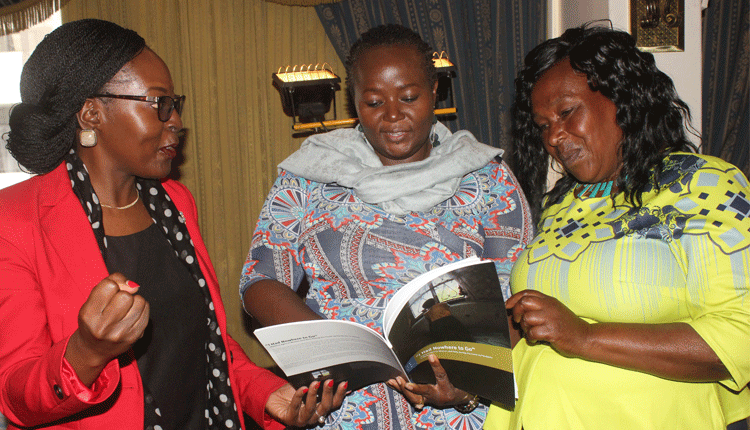Women’s rights include right to food and livelihood
By People.Reporter, November 30, 2021Covid-19 has led to a setback in the quest for gender equality, women’s rights and better livelihoods.
The 16 Days of Activism against Gender-Based (GBV) violence offer an opportunity for us to show commitment to ending violence, particularly against women.
The pandemic has reminded us that GBV is driven by patriarchal norms and entrenched structural inequalities that exclude and marginalise women and minorities.
We demand recognition of gender-based violence as a fundamental barrier to realising women’s rights including the right to food and the right to a sustainable livelihood.
Action against gender-based violence must be taken as part of the solution to affirming every individual’s right to food.
According to the UN Report on the State of Food Security and Nutrition in the world, nearly one in three people (2.37 billion) did not have access to adequate food in 2020 – an increase of almost 320 million people in just one year.
Harmful gendered social norms and inequalities means women are more likely to be denied the right to food. Ten per cent more women than men were food insecure in 2020, compared to six per cent in 2019.
Gender based violence remains a significant barrier to affirming the right to food for women and girls. If we do not address gender-based violence, then we cannot achieve the right to food.
Statistics show that on average one in three women experience physical or sexual abuse in her lifetime.
The denial of the right to food is, in itself, a form of GBV. Harmful social gendered norms at the household level mean that women often eat less, eat last and eat least nutritious food.
Gendered norms about ownership of land, assets and resources mean that women are denied socio-economic and civil and political rights, which is a form of structural violence.
Food insecurity can exacerbate the severity or impact of GBV.
The experience of GBV can also heighten food insecurity by undermining the physical and psychosocial well-being of survivors. Injuries or illnesses can affect a survivor’s capacity to work, limiting their ability to produce or secure food for themselves and their families.
Stigma and exclusion may further reduce survivors’ access to food distributions, food- and agriculture-related technical training, and other forms of support.
As the Covid-19 pandemic unfolds, it’s posing new challenges to rural women with regards to their roles in ensuring food security in the households, as agricultural producers, women farmers, informal sector workers and entrepreneurs.
Global studies show that rural women are disproportionally affected by health and economic crises including food security and nutrition, time poverty, access to health facilities, social services and economic opportunities and violence.
According to the UN Report on the State of Food Security and Nutrition in the world, nearly 660 million people will still be food insecure in 2030.
Of these, some 30 million may be linked to the pandemic’s lasting effects. This will of course also particularly impact women and likely increase violence against women.
Women are agents of change and key players in the global food system. We need to transform harmful gender norms that perpetuate gender-based violence to ensure that women can fully affirm their rights, including the right to food and ensure recognition for their significant contribution to the agriculture sector and the production of food.
It is time to speak up in solidarity with all women everywhere for ending gender-based violence.
It is also time for the development sector to work on ensuring safe spaces for women, so they can share their experience of violence and how this intersects with their multiple identities.
We must create safe spaces for women, support women organisations, listen and plan for actions from the survivor lead approach during #16DaysofActivism and beyond. This is a long-term commitment, and we strongly condemn any form of gender-based violence.
